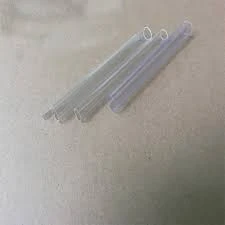Dàmh . 22, 2024 05:07 Back to list
Understanding the Benefits and Uses of PVC Sewer Pipe in Plumbing Systems
The Benefits and Applications of PVC Sewer Pipes
Polyvinyl Chloride (PVC) sewer pipes have become a popular choice in modern plumbing and drainage systems due to their numerous advantages over traditional materials. These pipes are designed to transport sewage and wastewater efficiently, and they play a crucial role in maintaining sanitation and public health. In this article, we will explore the benefits, applications, and considerations for using PVC sewer pipes.
Advantages of PVC Sewer Pipes
1. Durability and Longevity One of the most significant benefits of PVC sewer pipes is their exceptional durability. PVC is resistant to corrosion and does not rust, which is particularly important when dealing with waste that may contain harsh chemicals. Unlike clay or metal pipes, PVC can withstand environmental factors such as moisture and soil movement, ensuring a long lifespan that can exceed 50 years with proper installation and maintenance.
2. Lightweight and Easy to Handle PVC pipes are much lighter compared to their concrete or metal counterparts. This lightweight nature makes them easier to transport and install, which can lead to reduced labor costs and time during the installation process. Reduced weight also means that less heavy machinery is required, simplifying logistics on construction sites.
3. Cost-Effectiveness When comparing the costs of materials, PVC sewer pipes tend to be more affordable than traditional options. The initial purchasing price, combined with lower labor costs due to easier installation and reduced need for maintenance, makes PVC an economically viable choice for both residential and commercial projects.
4. Resistance to Biological Growth PVC pipes do not support biological growth, meaning they are less likely to become clogged with roots or other organic matter. This characteristic ensures smoother flow and reduces the frequency and expense of maintenance and repairs.
5. High Flow Capacity The smooth interior surface of PVC pipes allows for high flow rates, reducing the risk of blockages and backups. This feature is especially critical in sewer systems where efficient wastewater transport is necessary to prevent flooding and other sanitary issues.
pvc sewer pipe

Applications of PVC Sewer Pipes
PVC sewer pipes are versatile and can be used in various applications. Some common uses include
- Residential Sewer Systems Many homeowners use PVC pipes for their sewer drainage systems due to their ease of installation and long lifespan. - Commercial Plumbing Businesses and commercial establishments rely on PVC for waste management systems, benefiting from the material’s robustness and cost savings. - Stormwater Management PVC pipes are also employed in stormwater drainage systems, helping to divert rainwater away from streets and buildings, thus preventing flooding. - Agricultural Drainage In agriculture, PVC pipes are used for drainage and irrigation, promoting efficient water management practices.
Considerations for Using PVC Pipes
While PVC sewer pipes offer numerous benefits, there are a few considerations to keep in mind. It is essential to ensure proper installation to avoid issues such as joint failures or leakages. Local building codes and regulations should also be reviewed, as some areas may have specific requirements regarding the use of PVC in sewer systems.
Additionally, while PVC is resistant to many chemicals, certain solvents and oils may damage the material. It’s vital to assess the types of wastewater being transported to ensure compatibility.
Conclusion
PVC sewer pipes have revolutionized plumbing and drainage solutions, providing a reliable, cost-effective option for both residential and commercial applications. Their durability, resistance to corrosion, and easy handling make them a preferred choice in modern infrastructure. By understanding the advantages and proper applications of PVC sewer pipes, developers, contractors, and homeowners can make informed decisions that contribute to efficient waste management systems, ultimately promoting public health and environmental sustainability.
-
PVC Transparent Sheet Roll - Durable & Flexible PVC Plastic Sheet Roll for Industrial & Home Use
NewsJun.24,2025
-
High-Quality PVC PPR Pipes and Fittings Durable ERA PPR Solutions
NewsJun.10,2025
-
High-Quality Large HDPE Sheets & Large Diameter PVC Pipe Durable Large PVC Pipe Supplier
NewsJun.10,2025
-
High Density Polyethylene Cutting Board - Durable & Food Safe
NewsJun.09,2025
-
3 Inch PVC Pipe for Durable Irrigation Affordable & Reliable
NewsJun.09,2025
-
Premium PPR Plastic Water Pipe Fittings - Durable & Leak-Free
NewsJun.09,2025

